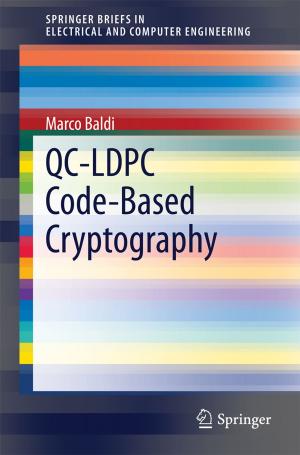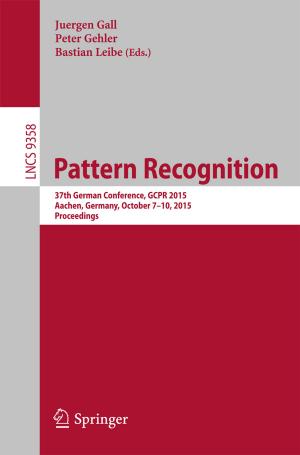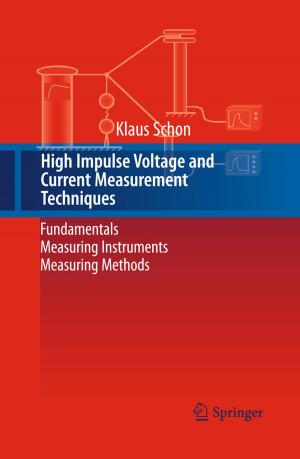Design of Power-Efficient Highly Digital Analog-to-Digital Converters for Next-Generation Wireless Communication Systems
Nonfiction, Science & Nature, Technology, Electronics, Circuits, Telecommunications| Author: | Xinpeng Xing, Peng Zhu, Georges Gielen | ISBN: | 9783319665658 |
| Publisher: | Springer International Publishing | Publication: | October 4, 2017 |
| Imprint: | Springer | Language: | English |
| Author: | Xinpeng Xing, Peng Zhu, Georges Gielen |
| ISBN: | 9783319665658 |
| Publisher: | Springer International Publishing |
| Publication: | October 4, 2017 |
| Imprint: | Springer |
| Language: | English |
This book discusses both architecture- and circuit-level design aspects of voltage-controlled-oscillator (VCO)-based analog-to-digital converters (ADCs), especially focusing on mitigation of VCO nonlinearity and the improvement of power efficiency. It shows readers how to develop power-efficient complementary-metal-oxide-semiconductor (CMOS) ADCs for applications such as LTE, 802.11n, and VDSL2+. The material covered can also be applied to other specifications and technologies.
Design of Power-Efficient Highly Digital Analog-to-Digital Converters for Next-Generation Wireless Communication Systems begins with a general introduction to the applications of an ADC in communications systems and the basic concepts of VCO-based ADCs. The text addresses a wide range of converter architectures including open- and closed-loop technologies. Special attention is paid to the replacement of power-hungry analog blocks with VCO-based circuits and to the mitigation of VCO nonline
arity. Various MATLAB®/Simulink® models are provided for important circuit nonidealities, allowing designers and researchers to determine the required specifications for the different building blocks that form the systematic integrated-circuit design procedure.
Five different VCO-based ADC design examples are presented, introducing innovations at both architecture and circuit levels. Of these designs, the best power efficiency of a high-bandwidth oversampling ADC is achieved in a 40 nm CMOS demonstration.
This book is essential reading material for engineers and researchers working on low-power-analog and mixed-signal design and may be used by instructors teaching advanced courses on the subject. It provides a clear overview and comparison of VCO-based ADC architectures and gives the reader insight into the most important circuit imperfections.
This book discusses both architecture- and circuit-level design aspects of voltage-controlled-oscillator (VCO)-based analog-to-digital converters (ADCs), especially focusing on mitigation of VCO nonlinearity and the improvement of power efficiency. It shows readers how to develop power-efficient complementary-metal-oxide-semiconductor (CMOS) ADCs for applications such as LTE, 802.11n, and VDSL2+. The material covered can also be applied to other specifications and technologies.
Design of Power-Efficient Highly Digital Analog-to-Digital Converters for Next-Generation Wireless Communication Systems begins with a general introduction to the applications of an ADC in communications systems and the basic concepts of VCO-based ADCs. The text addresses a wide range of converter architectures including open- and closed-loop technologies. Special attention is paid to the replacement of power-hungry analog blocks with VCO-based circuits and to the mitigation of VCO nonline
arity. Various MATLAB®/Simulink® models are provided for important circuit nonidealities, allowing designers and researchers to determine the required specifications for the different building blocks that form the systematic integrated-circuit design procedure.
Five different VCO-based ADC design examples are presented, introducing innovations at both architecture and circuit levels. Of these designs, the best power efficiency of a high-bandwidth oversampling ADC is achieved in a 40 nm CMOS demonstration.
This book is essential reading material for engineers and researchers working on low-power-analog and mixed-signal design and may be used by instructors teaching advanced courses on the subject. It provides a clear overview and comparison of VCO-based ADC architectures and gives the reader insight into the most important circuit imperfections.















